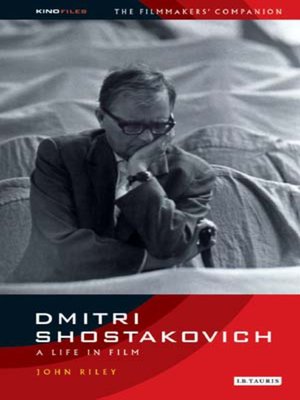
Sign up to save your library
With an OverDrive account, you can save your favorite libraries for at-a-glance information about availability. Find out more about OverDrive accounts.
Find this title in Libby, the library reading app by OverDrive.



Search for a digital library with this title
Title found at these libraries:
| Library Name | Distance |
|---|---|
| Loading... |
Of all the major Soviet composers who worked in the cinema, the most prominent was Dmitri Shostakovich who, in addition to over a hundred works for the stage and concert hall, wrote scores for almost forty films. Yet despite his reputation this work, when not completely overlooked, has been poorly judged by the same criteria as his other music. Likewise, while much attention has been paid to Soviet film, the crucial role played by the scores is all too often forgotten. This, the first book in English to look at Shostakovich's cinema career, discusses every film he scored, looking at the films themselves, tracing their relationship to the changing concerns and policies of the Soviet state and examining how the music works in context. Though they often discussed the theme of the Revolution, the style evolved: avant-garde historical films gave way to Socialist Realist dramas, which were supplanted by war films, then biopics of prominent Russians, culminating in the epics of high Stalinism and ending with classic literary adaptations. At every turn Shostakovich was expected to produce the appropriate score. John Riley also gives a fascinating account of the composer's life. After starting as a teenager eking out a living as a silent cinema pianist, his first full film score, New Babylon (1929), plunged the twenty-three year old into a series of controversies, yet forty-one years later King Lear, written five years before his death in the depths of Brezhnev's stagnation, shows the same musical and political independence. This highly readable book will be welcomed equally by devotees of the composer; those interested in Soviet culture and cinema; and general film music enthusiasts. 'Thanks to John Riley we now have a much fuller picture of the tortuous fate of many of the films themselves, as well as a judicious weighing of their cinematic and musical merits. To all this the author brings not only his expertise as a film historian -– drawing on Russian as well as Western sources —-– but also a wide-ranging musical knowledge and penetrating intelligence.' —Professor David Fanning, University of Manchester







